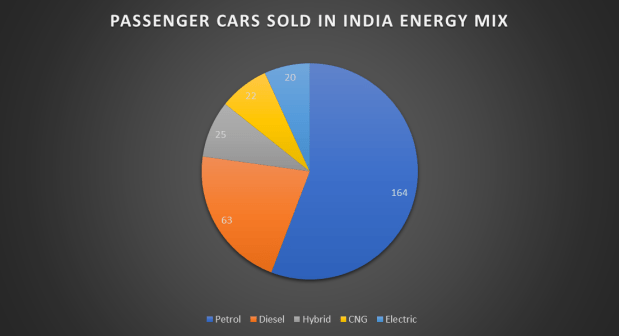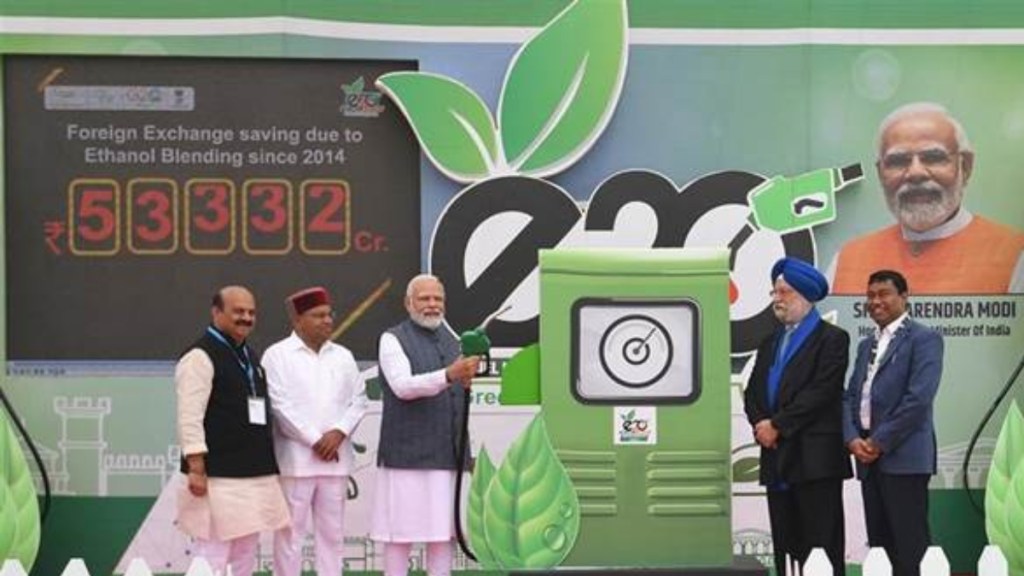The Indian automotive industry is one of the most diverse industries globally when it comes to the adoption of various fuel types. In fact, if one looks at the various fuel mix available in the country – petrol, diesel, CNG, LPG, E20, flex fuel, LNG, EVs – it seems to be one of the widest available globally.
But from the auto consumer perspective, petrol and diesel for long have been the mainstay and accepted energy choices given their easy availability and vehicle models available in the country. The government on the other hand has been pushing the auto industry to embrace alternate fuel mix and possibly steer away from diesel, especially in the passenger vehicle segment.
There are currently more than 200 passenger vehicle models sold in the country across the brands. Of this petrol, followed by diesel, CNG, hybrid, and electric make for the greatest number of models available in the country (refer to chart below).

What’s more, with the government pushing for the E20 fuel, how will it impact the product demand mix in the passenger vehicle segment?
It seems that the decline in demand for diesel vehicles can be attributed to OEMs discontinuing various models, on the back of a substantial increase in cost to adhere to stringent emission norms. This has led to the price difference between petrol and their diesel counterparts growing substantially. This is where E20-compliant vehicles (80% petrol and 20% ethanol) will come in, these petrol-powered cars will be able to reduce tailpipe emissions all the while also bringing down fuel import bills.
In an earlier interaction with Financial Express, CV Raman, CTO, Maruti Suzuki India had presented his views on the well-to-wheel calculations for EVs versus hybrids and IC-vehicles. You can read the interview here.
For the government too, E20 fuel brings in opportunities to drive farmer income, reduce pollution and cut down on fuel import bill. All the while, without the need to invest significantly for the fuel dispensing network. Similarly, when it comes to the performance of the E20 fuel, on older generation vehicles, there are concerns of over certain engine components becoming more prone to corrosion. A small efficiency loss is also expected.
But for newer vehicles designed to be able to utilise the fuel, there would hardly be any efficiency, performance loss, or engine corrosion.



















